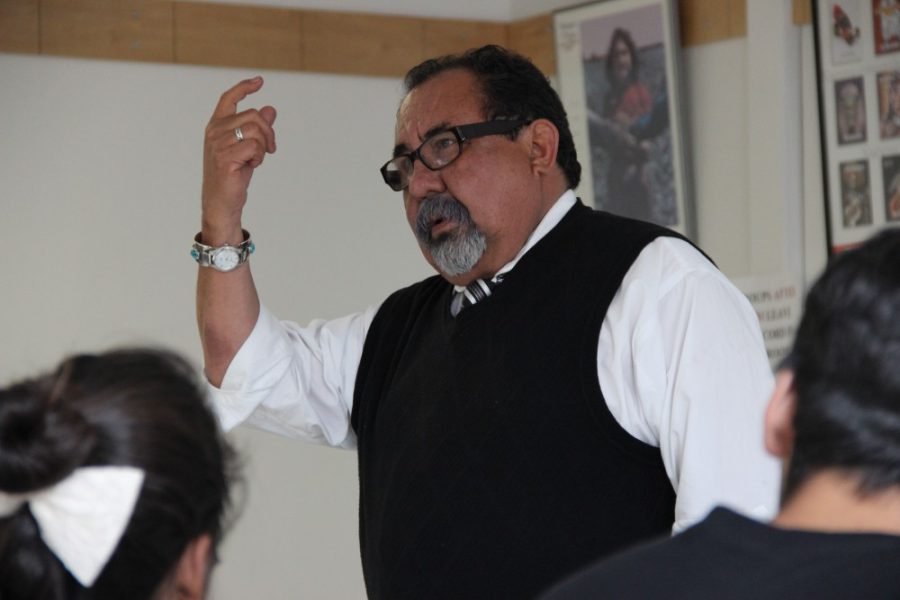U.S. Rep. Raul Grijalva, District 3, visited campus Thursday to discuss the legacy of labor and civil rights activist Cesar Chavez.
The discussion, coordinated by Chicano/Hispano Student Affairs, addressed Chavez’ leadership and his humanity before relating the issues that he faced to the current debate on immigration.
“When I think of Chavez, I think about how he changed the social dynamic in this country,” Grijalva said.
As a social activist, Chavez fought for worker’s rights and civil rights in general. In 1962, he founded the National Farm Workers Association, which later became the United Farm Workers union, according to the union’s website.
Grijalva said he marvels at Chavez’ leadership and the “moral imperative” he displayed. He said the union leader’s movement, propelled through non-violent activism, demonstrated that anonymous workers deserved all the liberties afforded to the rest of the country.
“He gave a voice to the voiceless,” Grijalva said.
Grijalva also said Chavez was criticized for insisting he was solely a union leader and not a “Chicano leader.” Chavez also drew criticism from the political left for “selling out to the Republicans” to get legislation passed that was beneficial to the union, said Grijalva.
“But that shows his humanity,” he said, speaking on Chavez’ seemingly contradictory behavior.
With respect to the current debates on immigration, Grijalva said a different form of humanity is required. Importance should be placed on the lives of the migrant workers and their right to liberty, he said.
“If Cesar was involved now, I think that’s the insistence that he would bring to this discussion,” he said.
Though contemporary politics were a major subject, Grijalva repeatedly brought the focus back to Chavez, whom the congressman said he idolized growing up.
He recalled a paper that he wrote in high school on Chavez’ worker movement. After speaking about how much work he had put into the assignment, he said that his conclusion was that the movement “was going to forever change the way the U.S. and Mexican people see each other.” His professor wrote on the bottom of the paper: “Ffaulty conclusion.”
Laughing, Grijalva noted the irony that his speech was being held in a university with a very prominent Latin American population, in a building dedicated to Chavez.
“When you look around, you look at the fruits of that effort,” Grijalva said.









